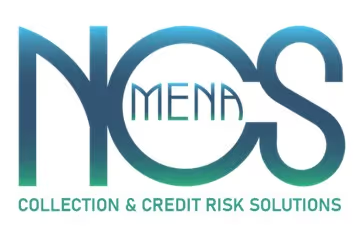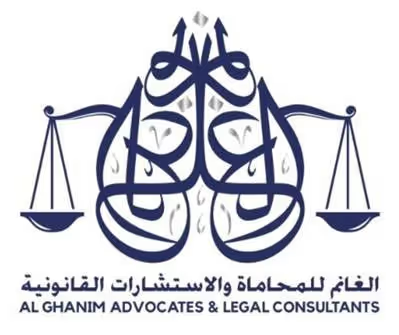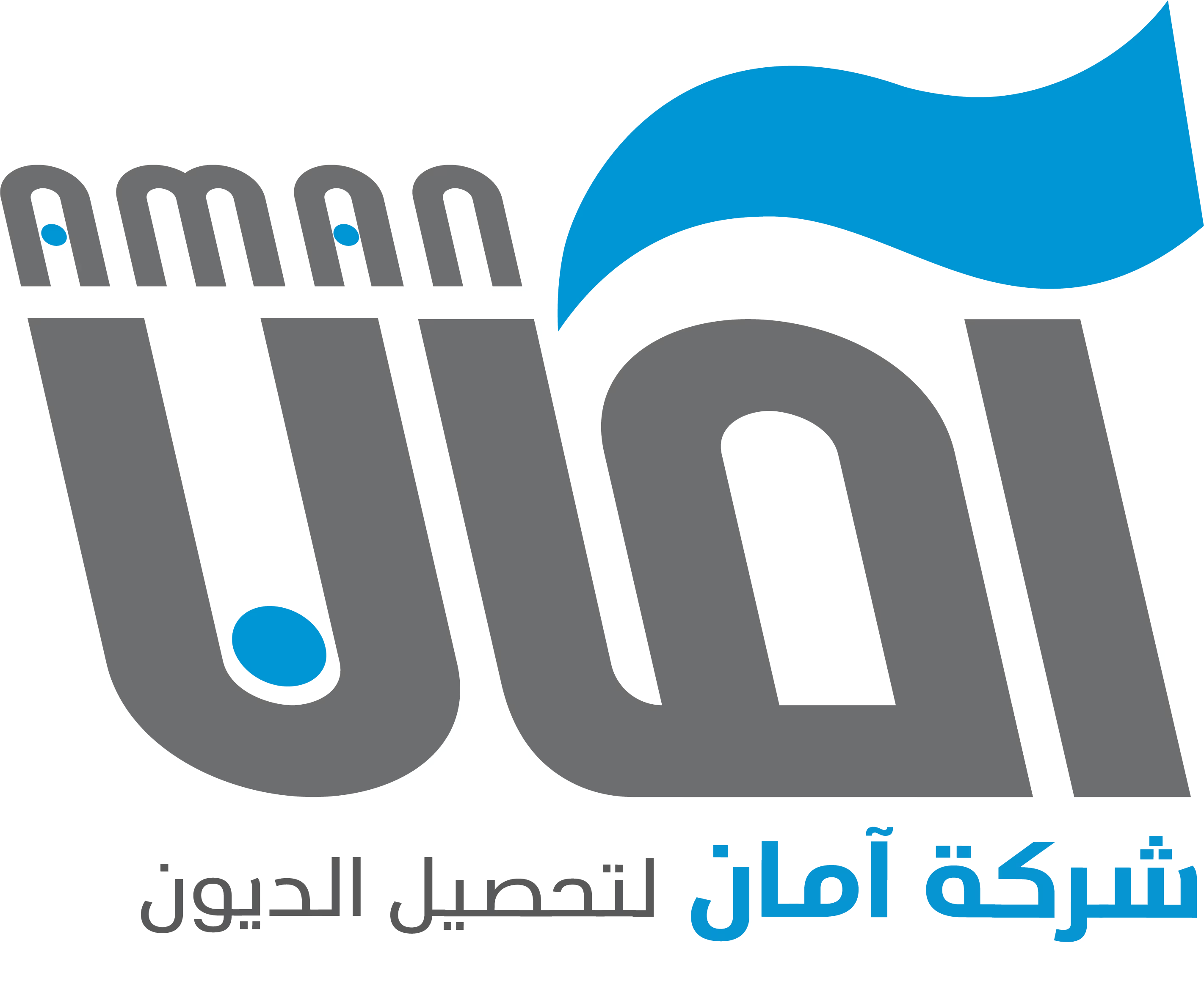Top-Rated Debt Collection Agency in Saudi Arabia
Your trusted debt collection agency in Saudi Arabia, offering swift claim recovery without upfront fees. Discover the definitive guide to local collection practices.






The ultimate guide about debt collection in Saudi Arabia
Why you can trust this guide
At Debitura, we uphold the highest standards of impartiality and precision to bring you comprehensive guides on international debt collection. Our editorial team boasts over a decade of specialized experience in this domain.
Questions or feedback? Email us at contact@debitura.com — we update this guide based on your input.
Debitura By the Numbers:
- 10+ years focused on international debt collection
- 100+ local attorneys in our partner network
- $100M+ recovered for clients in the last 18 months
- 4.9/5 average rating from 621 reviews
Expert-led, locally validated
Written by Robin Tam (16 years in global B2B debt recovery). Every page is reviewed by top local attorneys to ensure legal accuracy and practical steps you can use.
Contributing local experts:
Last updated:
Dealing with delayed payments in Saudi Arabia can be tricky. With Debitura, streamline your debt recovery seamlessly. Our guide, fusing local knowledge with international know-how, is your prime instrument for tackling debt collection challenges effectively.
Unveiling the Key Role-Players in Saudi Arabia's Debt Recovery Scene
Grasping the roles and obligations of the major actors in Saudi Arabia's debt recovery process is vital. This covers debt collection agencies, bailiffs, and lawyers, each playing a unique part in this tightly regulated operation to recoup debts while adhering to the country's strict legal framework.
Debt Collection Agencies in Saudi Arabia
In the complex financial landscape of Saudi Arabia, debt collection agencies emerge as essential intermediaries in the debt recovery framework. These agencies are actively involved from the onset, offering a blend of negotiation, mediation, and communication services to persuade debtors towards settling their dues. They serve before the introduction of legal mechanisms, striving for amicable resolutions through emails, calls, and correspondence, thereby favoring voluntary compliance over compulsory enforcement. Given the foundations of Saudi law, which disallows the accrual of interest on late payments and mandates prior agreements for recovering collection costs, these agencies navigate a delicate balance. Their operations are regulated under Sharia law and overseen by the Saudi Arabian Monetary Authority (SAMA), highlighting a strict adherence to ethical standards and consumer rights protection. Despite their diligent efforts, there are bounds to what they can achieve without legal recourse, marking a transition to judicial proceedings should negotiations falter. Their expertise, particularly in pre-legal collection phases, plays a pivotal role for creditors aiming to resolve disputes without escalating to court actions.
Lawyers in Debt Recovery: A Saudi Arabian Perspective
In the sphere of debt recovery within Saudi Arabia, lawyers play a pivotal role, especially when creditors seek to navigate the complexities of judicial collection. Their involvement becomes crucial once negotiations or amicable settlements fail to yield results, signaling the transition to formal litigation. Lawyers in Saudi Arabia distinctively handle the drafting and filing of necessary legal documents, advocate on behalf of creditors during court proceedings, and ensure adherence to Shari’ah principles alongside local regulations. Their comprehensive understanding of both the legal system, including the Execution Court's procedures, and specific debt recovery laws, positions them as invaluable allies in enforcing creditors’ rights and facilitating the efficient resolution of disputes. This expertise not only aids in navigating the court system but also in strategizing for the recovery of debts within the framework of Saudi Arabian legal practices.
The Role of Bailiffs in Saudi Arabia
In the intricate landscape of debt recovery within Saudi Arabia, bailiffs occupy an essential position, acting as the judicial arm that enforces court rulings related to debt collections. These legal professionals are entrusted with implementing court orders, which typically involve the seizure and auctioning of debtors' assets to recover owed amounts. Before a bailiff can be engaged, a creditor must navigate through the judicial system to obtain an execution order from the Saudi Execution Court, underscoring the importance of legal compliance and the adherence to Sharia Law in debt enforcement proceedings.
The initiation of a bailiff's intervention signals the transition to the judicial phase of debt collection, marking an escalated step beyond pre-legal measures. Key tasks carried out by bailiffs include asset evaluation, seizure, and sale, all conducted under the strict guidelines set by the Saudi Execution Law. This ensures not only the thorough enforcement of the creditor's rights but also the protection of the debtor's legal entitlements, maintaining a careful balance between recovery efficiency and fairness.
Navigating Saudi Arabian Debt Collection Laws
Collecting debts in Saudi Arabia demands in-depth knowledge of its intricate legal system. Complying with these laws not only facilitates effective debt recovery, but also fosters fairness, a prerequisite for maintaining trust and integrity in commercial transactions.
The Regulatory Environment and Civil Court System in Saudi Arabia
The civil court system in Saudi Arabia is deeply rooted in Islamic law, offering a structured pathway for judicial debt collection and dispute resolution.
- First Level - General Courts: At the base are the General Courts handling a wide range of civil issues, including smaller financial claims not exceeding 20,000 riyals. These courts have the flexibility to address individual matters efficiently.
- Second Level - Commercial Courts: For business-related disputes, including larger financial claims, the Commercial Courts are specialized, focusing on commercial law and providing a forum for legal action on debt recovery.
- Third Level - Supreme Court: At the apex is the Supreme Court, ensuring legal validity and consistency across rulings. It plays a key role in maintaining the integrity and application of both Shari'ah law and commercial regulations throughout the judiciary process.
The hierarchical structure of Saudi Arabia’s civil court system, reformed in 2007, is designed to enhance dispute resolution and streamline the enforcement of debt collection. Key to navigating this system is understanding the specific jurisdictions and procedures of each court, ensuring efficient and fair outcomes in debt recovery and legal disputes.
Key Legislation Impacting Debt Collection in Saudi Arabia
In Saudi Arabia, the legal framework governing debt collection is multifaceted, emphasizing Shari'ah compliance and ensuring a fair process for both creditors and debtors.
- Execution Law: Establishes procedures for the enforcement of judgments, allowing for the seizure of debtor assets to satisfy debts, under the oversight of the Execution Judge.
- Bankruptcy Law: Facilitates the financial restructuring for distressed businesses, aiming to balance the interests of both debtors and creditors while ensuring continuity of viable businesses.
- Consumer Protection Regulations: Regulated by the Saudi Arabian Monetary Authority (SAMA), these ensure fair practices in debt collection and safeguard consumer rights.
Saudi Arabia's unique combination of Shari'ah principles and modern legal frameworks provides a structured approach to debt collection, aiming to protect the interests of all parties involved while ensuring efficiency and fairness in financial transactions.
Consumer Protection from Unfair Collection Practices in Saudi Arabia
In Saudi Arabia, consumer protection in the context of debt collection is woven into a legal framework that meticulously balances Shari'ah principles with the rights of debtors.
- The Saudi Arabian Monetary Authority (SAMA) monitors debt collection methods, ensuring they are fair and respectful of debtor rights, while emphasizing the necessity of accurate documentation.
- Consumer rights are further safeguarded by prohibiting excessive collection costs without prior agreement — an aspect that stresses the importance of transparent communication and contracts.
- Debt collection agencies are regulated under anti-money laundering and anti-terrorism laws, providing an ethical and legal boundary within which they must operate.
- The legal framework mandates that all execution of court orders, including debt recovery, must comply with Shari’ah law, ensuring that the collection practices adhere to ethical standards.
- For smaller financial claims (up to 20,000 riyals), a streamlined process exists which is not subject to objection or appeal, demonstrating a structured approach to dealing with minor disputes efficiently while protecting the consumer from potential legal complexities.
In essence, Saudi Arabia offers a legal framework designed to protect consumers from unfair collection practices. This system emphasizes ethical conduct, adherence to Shari'ah principles, and a structured process for dispute resolution, ensuring that the debt collection adheres not just to legal standards, but also to a higher moral ground.
Understanding Amicable Debt Collection in Saudi Arabia
This brief overview uncovers the essentials of pre-legal or amicable debt collection in Saudi Arabia. The approach, often assigned to collection agencies, allows for swifter and less intricate settlement of debts without the need for court interference.
- Legal Framework and Sharia Law: Rooted in Sharia, affecting debt recovery and prohibiting interest on late payments.
- Professional Debt Collection Agencies: Often operate on a 19.5% commission basis, emphasizing negotiation and installment plans.
- Role of Negotiation: Preferred method aligning with cultural values and legal emphasis on contractual freedom.
- Prohibition of Late Payment Interest: Interest not permitted, influencing negotiation dynamics to focus on securing the principal amount.
- Consumer Protection Measures: Strict laws ensure fair practices, emphasizing documentation and adherence to regulations.
- Use of Specialized Law Firms: Critical for navigating the legal system and ensuring compliance with local laws.
- Regulation of Debt Collection Practices: Overseen by SAMA to ensure fairness and legal compliance.
- Cost of Amicable Debt Recovery: Includes commission rates and possible legal fees, with costs typically not reclaimable from the debtor.
- Transitioning to Judicial Debt Recovery: Seamless with specialized law firms knowledgeable in both amicable and judicial processes.
- Cultural Considerations: Local norms emphasize negotiation and relationship preservation, key for successful debt recovery.
Navigating Amicable Debt Collection in Saudi Arabia
Amicable debt collection in Saudi Arabia stands as a testament to the importance of preserving business relationships while ensuring creditors recover their dues. This method emphasizes empathy, negotiation, and understanding—premises deeply rooted in the local business culture. Especially in the context of Saudi Arabia, where late payments are commonplace yet the legal framework discourages interest for late payment, amicable solutions offer a pathway that respects both the debtor's circumstances and the creditor's needs.
The Role of Professional Agencies in Amicable Collection
In the unique landscape of Saudi Arabia, professional debt collection agencies play a crucial role. Agencies like Debitura leverage their local expertise and understanding of the Saudi legal and cultural environment to facilitate effective debt recovery. The process often begins with a comprehensive assessment, followed by communication with the debtor through reminders or formal notices. These efforts, conducted with an objective and professional stance, can significantly enhance the chances of successful debt recovery—making amicable collection a preferred choice for many businesses.
The Advantages of Choosing Amicable Collection
Opting for an amicable approach to debt collection in Saudi Arabia bears numerous benefits. It allows creditors to avoid the costs associated with legal procedures and maintain valuable commercial relationships. Debtors are afforded the flexibility of repayment plans that consider their financial situations, thereby reducing stress and promoting a positive resolution. Such an approach not only reflects respect and empathy but also aligns with the principles of Sharia law, which forms the foundation of Saudi Arabia's legal system.
Transitioning from Amicable to Judicial Collection
While the amicable approach is preferred, certain situations may necessitate moving towards judicial collection. This step is recommended only when efforts through negotiation and communication have been thoroughly exhausted, marked by signs of unresponsiveness or deliberate evasion by the debtor. Transitioning to legal action should be considered carefully, recognizing the implications in terms of costs, time, and potential impact on business relationships.
Understanding Amicable Debt Collection Costs
Engaging with Debitura in Saudi Arabia for amicable debt collection is seamless and risk-free. Our competitive fee structure is success-based, ensuring that you only pay if we successfully recover your debt. This approach underscores our commitment to providing value-driven services, tailored to the specific legal and cultural context of Saudi Arabia. Begin without any upfront fees, and enjoy the transparency and efficiency of a process that respects both the creditor's and debtor's positions.
Efficient and Empathetic Process
Debitura's process for amicable debt recovery in Saudi Arabia is designed to be efficient yet empathetic. From the initial identification of debt and debtor to the final stages of negotiation and recovery, our approach is characterized by professionalism and understanding. This process, typically spanning 2-3 months, emphasizes the importance of preserving business relationships while ensuring debts are recovered in a manner compliant with local regulations and customs.
Exploring Legal Debt Collection in Saudi Arabia
Navigating through amicable attempts to debt recovery can sometimes lead to judicial debt collection. This process involves seizing a court order to support claims, involving bailiffs, unless it is within a small claim's scope. We provide an in-depth look at the legal debt collection procedure specific to Saudi Arabia.
- Court Hierarchy and Specialization: Specialized courts ensure efficient handling of debt recovery cases.
- Execution Court Enforcement: Tasked with enforcing court orders, including assets seizure for non-compliance.
- Evidence and Proof Importance: Contracts, invoices, and electronic evidence are crucial in financial claims.
- Negotiation Before Legal Action: Prioritizes amicable settlements, with legal action as a last resort.
- Jurisdiction and Case Filing: Critical to file a claim in the correct court, with streamlined processes for small claims.
- Consumer Protection: SAMA regulates collection practices to ensure fairness and ethical standards.
- Late Payment and Collection Costs: No specific regulations on late payment interests, costs must be pre-agreed.
- Agency Role in Debt Recovery: Agencies negotiate repayment plans or initiate legal action, adhering to regulations.
- Complexity in Enforcement: Recent laws introduce challenges in enforcing court decisions, including the repayment of legal costs.
- Insolvency and Bankruptcy Processes: Reflects a blend of Shari'ah principles and modern laws, focusing on fairness and alternative solutions.
Shifting from Amicable to Judicial Debt Collection in Saudi Arabia
In the landscape of debt collection in Saudi Arabia, distinguishing between amicable and judicial debt collection is crucial. Amicable debt collection typically implies negotiations and settlement strategies outside the courtroom. However, under certain circumstances, such as unresolved disputes or the need for stringent enforcement actions, creditors may transition to judicial debt collection methods. This pivot is often recommended when amicable efforts fail to yield desired outcomes. Given the complexity and formalities involved in judicial proceedings, securing experienced legal representation becomes essential to navigate the judicial process effectively and enhance the prospects of recovering debts.
The Importance of a Formal Judgment in Saudi Arabia
Obtaining a court order, or a formal judgment, is a critical step towards debt recovery in Saudi Arabia, acting as a legal validation of the claim against a debtor. This process begins with filing a claim in the Execution Court, where the legality of the debt is verified, ensuring compliance with Sharia principles and Execution Regulations. The Court then pronounces a judgment, enabling the creditor to enforce the claim through legal means. Enforcement may include actions like asset seizure, except for certain exclusions protected under law. This emphasizes the significance of a court order in securing and enforcing creditors' rights, making legal consultation and representation pivotal.
Determining the Appropriate Court in Saudi Arabia
Identifying the right judicial venue for a debt collection case in Saudi Arabia hinges on several factors, including the nature of the dispute, the monetary value involved, and the specificity of the claim. Financial disputes might find their resolution in various courts such as General Courts, for personal matters, and Commercial Courts for business disputes, with special considerations for claims not exceeding 20,000 riyals, which are expedited without the chance for objection or appeal. Additionally, the jurisdiction of Specialized Committees might be invoked in cases related to specific sectors. This process underscores the importance of understanding the Saudi legal environment's intricacies, from jurisdictional thresholds to specialized legal forums, facilitating a more structured and informed approach to debt recovery. Legal representation experts in Saudi law can play a pivotal role in guiding creditors through this complex judicial landscape.
Small Claims Court in Saudi Arabia
In Saudi Arabia, the legal framework caters to the swift resolution of small financial disputes through the establishment of a streamlined process known as Small Claims Court or similar simplified proceedings. Recognized for handling financial claims not exceeding 20,000 riyals, including cases like rental disputes, worker wages, and minor contractual disagreements, this system facilitates a quicker dispensation of justice without the complexities often associated with traditional court processes. Distinctively, cases adjudicated under this category are not subject to objection or appeal, promoting an expedited resolution. Managed primarily by General Courts for individual matters and Commercial Courts for business-related disputes, this methodology emphasizes efficiency and accessibility, thereby reflecting Saudi Arabia's commitment to simplifying legal proceedings for lower-value disputes, all the while ensuring justice is both accessible and timely dispensed.
Ordinary Proceedings in Saudi Arabia
In Saudi Arabia, ordinary proceedings represent the primary legal framework for resolving more substantial financial disputes beyond the scope of small claims court. These proceedings cater to cases that demand a comprehensive examination of evidence and legal arguments, therefore offering a platform for more complex litigation. Unlike small claims proceedings, which are designed for swift resolution of disputes involving amounts not exceeding 20,000 riyals, ordinary proceedings accommodate higher financial stakes and involve a more elaborate judicial process. This stature of legal action allows for a broader range of legal remedies and enforceable judgments.
Ordinary proceedings necessitate legal representation owing to their complexity. Engaging a professional legal counsel is mandatory, ensuring that the intricate aspects of Saudi Arabian law, regulations governing the proceedings, and adherence to Sharia principles are meticulously observed. Law firms specializing in debt collection in Saudi Arabia are adept at navigating these proceedings, leveraging their legal acumen to advocate effectively on behalf of creditors. The regulations governing ordinary proceedings are enshrined in Saudi Arabia's legal framework, which is characterized by a mix of Sharia law and the detailed procedural rules outlined in the Execution Law and other relevant legislation, ensuring judicious and fair adjudication of financial disputes.
A Guide to Debt Enforcement in Saudi Arabia
When it comes to claim enforcement, understanding the ins and outs of debt enforcement in Saudi Arabia, from judicial debt collection to bailiff-led asset seizure, is crucial. This section enlightens on maneuvering the legal corridors essential for efficient claim enforcement.
- Execution Law: Enforcement is governed by the Saudi Execution Law and its regulations.
- Execution Court Authority: The Execution Court has the sole authority for debt enforcement actions.
- Execution Order: Essential for initiating the process; issued within one month of application.
- Compliance with Sharia: Execution documents must be specific and compliant with Sharia Law.
- Asset Disclosure: Debtors must disclose properties; certain assets are protected from seizure.
- Seizure and Sales: Involves potential seizing of assets if payment is not made, followed by sales and distribution of property.
- Penalties for Debtors: Include fines, imprisonment, and potential criminal prosecution for fraudulent insolvency claims.
- Future Assets: An Execution Judge may order the seizure of future assets if a debtor conceals property.
- Insolvency Risks: Fraudulent insolvency claims or failure to repay debts can lead to up to fifteen years in prison.
Executing Court Orders: The Path to Debt Recovery in Saudi Arabia
In Saudi Arabia, the execution of court orders forms the cornerstone of the debt enforcement process, conducted under the aegis of the Saudi Execution Law. This meticulous process commences with the creditor applying for an execution order from the specialized Execution Court, compelling adherence to the law and Sharia principles. Execution orders are pivotal for creditors to vindicate their claims through legal means, ensuring a structured approach to asset seizure and debt recovery.
Seizure and Sale of Assets: A Delicate Balance
The seizure and liquidation of assets is a critical step in the debt recovery process, where the debtors' properties might be identified, appraised, and potentially sold at auction. This stage is carried out with the utmost regard for legal mandates and the shielding of a debtor's essential living needs. Certain personal belongings and a minimum income level are spared from seizure, showcasing the system's balance between creditor rights and debtor welfare.
Understanding the Legal and Financial Implications
For stakeholders involved in the debt enforcement journey, it's crucial to grasp the financial and legal landscape, which encompasses court fees, enforcement agent charges, and the costs associated with legal representation. Variances in these expenses reflect the complexity and length of enforcement actions. Saudi Arabia’s judicial framework, reformed to enhance dispute resolution efficiency, prescribes detailed procedures and responsibilities, ensuring equitable treatment for all parties.
Navigating Pre-Enforcement Strategies
As a precursor to enforcement actions, creditors are encouraged to confirm the validity of their enforceable titles and may extend a final notice to debtors, seeking amicable repayment. This strategic phase underscores the importance of voluntary settlement avenues and furnishes debtors with the opportunity to address debts, thus upholding their rights to contest or appeal against enforcement proceedings. Such preparation is integral to the holistic approach of debt recovery in Saudi Arabia, blending legal rigor with procedural fairness.
Debt Enforcement in Insolvency and Fraud Scenarios
In scenarios where insolvency or fraudulent actions by the debtor are in play, the Saudi legal system empowers enforcement agents and the court to delve deeper, potentially ordering the seizure of future assets or initiating criminal proceedings against deceitful insolvency. These stringent actions underscore the system's dedication to maintaining financial integrity and discouraging malfeasance, with imprisonment and hefty fines awaiting those found guilty.
Overall, through a combination of robust legal frameworks, responsible enforcement practices, and protective measures for debtors, Saudi Arabia offers a comprehensive and equitable approach to debt enforcement. This ensures not only successful debt recovery for creditors but also preserves the dignity and rights of debtors, fostering a balanced financial ecosystem.
Insight into Debt Recovery through Insolvency Procedures in Saudi Arabia
When a debtor is unable to fulfill financial commitments, insolvency occurs. Traditional corrective measures, such as asset seizure under court directives, can become ineffective if there are no recoverable assets. In such cases, bankruptcy proceedings offer a crucial alternative. These procedures systematically liquidate the debtor's resources, providing a last-ditch strategy to achieve restitution for unresolved claims.
- New Bankruptcy Law: Introduced in 2018 to streamline insolvency proceedings and support economic stability.
- Applicability: Applies to individuals, corporations, and non-Saudi investors doing business in the country.
- Debtor Classification: Distinguishes between "Insolvent" and "Bankrupt" debtors, with specific procedures for each.
- Procedures Available: Includes Preventative Settlement, Financial Restructuring, and Liquidation options.
- Bankruptcy Register: Establishment of a Register to record insolvency information, enhancing transparency.
- Priority of Debts: The law regulates set-off rights and prioritizes debts, protecting creditors' interests.
- Specialized Courts: Involvement of Commercial Courts in the insolvency process, ensuring expertise in rulings.
- Documentation Requirements: Creditors must provide detailed evidence of the debt, including contracts and commercial registration details.
- Enforcing Judgments: Recent laws improve the enforcement of court decisions, although challenges remain.
- Creditor Protection: Emphasis on fair treatment and ethical practices in debt recovery, safeguarding creditors' rights.
Insolvency and Bankruptcy Proceedings: Navigating the Complex Terrain in Saudi Arabia
The landscape of insolvency and bankruptcy in Saudi Arabia has undergone significant transformations, especially following the introduction of the New Bankruptcy Law in 2018. Aimed at modernizing the insolvency regime, this legal framework caters to individuals, corporations, and non-Saudi investors, enhancing creditor protection and facilitating smoother debt recovery and business continuity. The law outlines clear pathways—including Preventative Settlement, Financial Restructuring, and Liquidation—designed to either resuscitate financially distressed entities or orderly dissolve them, ensuring fair asset distribution among creditors.
Understanding the rights of creditors and the prioritization of their claims is pivotal in the insolvency framework. The New Law emphasizes the importance of timely claim submission and active participation in the proceedings, dictating the recovery potential for creditors. Secured creditors generally enjoy top priority, followed by a hierarchy of unsecured claimants, each with different implications for recovery prospects. It’s essential for creditors to navigate these intricacies proactively to safeguard their interests.
Costs and timelines represent critical considerations in insolvency proceedings within the Kingdom. Judicial and administrative fees, alongside professional legal support costs, are quantified against the debtor's estate prior to any creditor settlements. The procedural duration, affected by the debtor's financial complexity and the extent of disputations, necessitates preparedness among creditors for potentially prolonged engagements. This understanding equips stakeholders with the requisite knowledge to maneuver through the legalities of insolvency and bankruptcy in Saudi Arabia, thereby streamlining the debt recovery process and minimizing fiscal uncertainties.
Find a Local Debt Collection Lawyer
Need court-ready representation? Share your case once and receive up to three proposals from vetted litigation attorneys—free, fast, and with no commitment.
- Verified specialists
- Quotes in 24 h, no hidden fees
- Fair, pre-negotiated rates

Lawyer Deena AlQumaish Attorney & Law Consultancy is a premier law firm in Manama offering effective Debt Collection services in Bahrain, recognized for its 14 years of expertise, membership in the Bahrain Bar Association, and extensive regional and international reach.

Fahad Al Tamimi Law Firm is a premier law firm in Dammam offering effective Debt Collection services in Saudi Arabia, renowned for its strategic legal guidance since 2007, with accolades from MEA Business Awards and memberships in the Saudi Bar Association and Debitura.

NCS MENA is a premier debt recovery agency in Manama offering effective Debt Collection services in the Kingdom of Bahrain, established in 1993, serving over 80 countries, and a member of IACC, FENCA, and BIIA.

Tebyan Law Firm is a premier law firm in Jeddah offering effective debt collection services in Saudi Arabia, positioning itself as the go-to partner for debt recovery with a foundation in 2010, membership in the Saudi Bar Association, and international client services.

Legal Representation Solutions is a premier law firm in Riyadh offering effective Debt Collection services in Saudi Arabia, positioned as the go-to partner for debt recovery since 2016, serving the Arabian Gulf, and a proud member of the Saudi Bar Association.

Alghanim Law Firm is a premier law firm in Riyadh offering effective Debt Collection services in Saudi Arabia, positioning itself as the go-to partner for debt recovery with a 98% success rate, founded in 2018, and membership in the Saudi Bar Association.

Edrak Law Firm is a premier law firm in Riyadh offering effective Debt Collection services in the Kingdom of Saudi Arabia, positioning itself as the go-to partner for debt recovery with a foundation in 2020, aligned with Saudi Vision 2030, and recognized by the Ministry of Justice.

Al Suwaiket & Al Busaiyes Lawyers and Legal Consultants Co. is a premier law firm in Al Khobar offering effective Debt Collection services in Saudi Arabia, established in 2006, and recognized by the International Bar Association and Saudi Center for Commercial Arbitration.

Aman Debt Collection Company is a premier debt recovery agency in Dammam offering effective Debt Collection services in Saudi Arabia, recognized as a trusted partner since 2008, serving Saudi Arabia, Bahrain, Kuwait, and the UAE with award-winning expertise and strategic excellence.

SAAR Debt Collection is a premier debt recovery agency in Riyadh offering effective Debt Collection services in Saudi Arabia, recognized for its global partnerships, established in 2018, with membership in the International Association of Commercial Collectors, and serving both local and international markets.





.svg)

.webp)
.png)

.png)
.svg)












.webp)